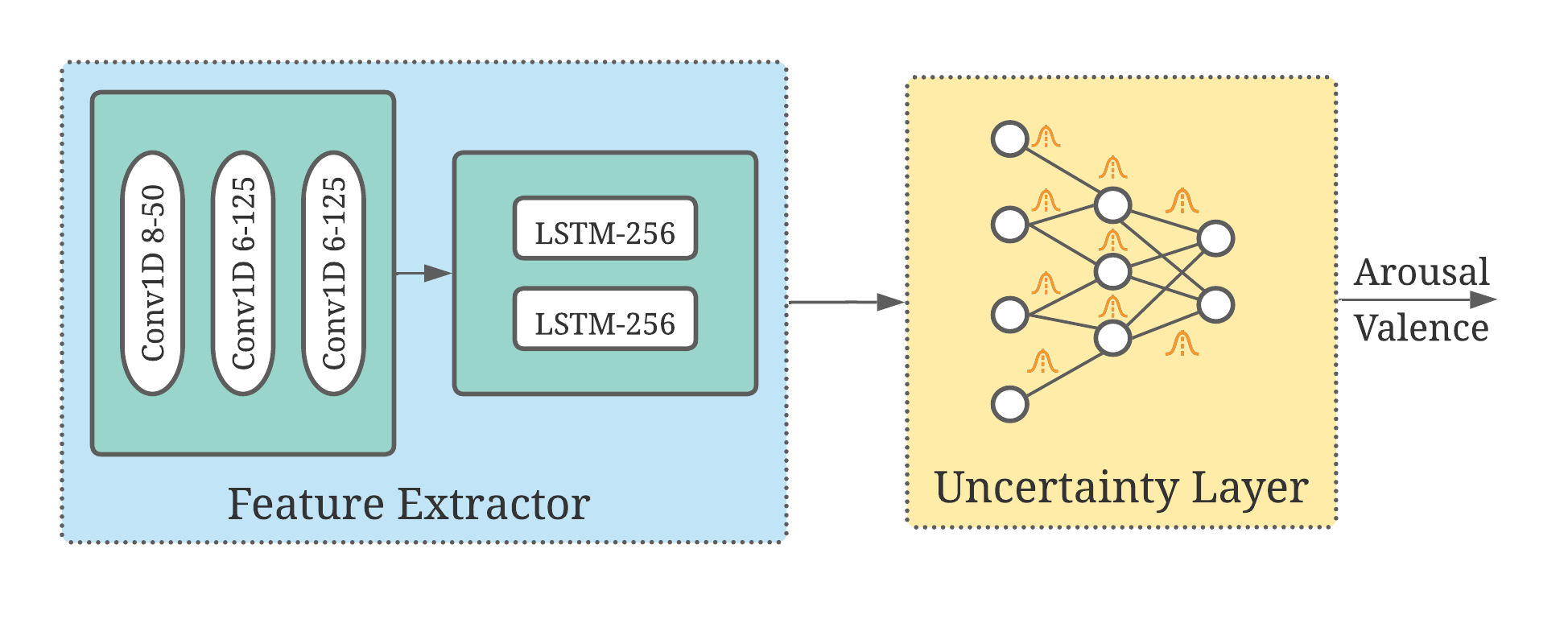End-To-End Label Uncertainty Modeling for Speech-based Arousal Recognition Using Bayesian Neural Networks
Emotions are subjective constructs. Recent end-to-end speech emotion recognition systems are typically agnostic to the subjective nature of emotions, despite their state-of-the-art performance. In this work, we introduce an end-to-end Bayesian neural network architecture to capture the inherent subjectivity in the arousal dimension of emotional expressions. To the best of our knowledge, this work is the first to use Bayesian neural networks for speech emotion recognition. At training, the network learns a distribution of weights to capture the inherent uncertainty related to subjective arousal annotations. To this end, we introduce a loss term that enables the model to be explicitly trained on a distribution of annotations, rather than training them exclusively on mean or gold-standard labels. We evaluate the proposed approach on the AVEC'16 dataset. Qualitative and quantitative analysis of the results reveals that the proposed model can aptly capture the distribution of subjective arousal annotations, with state-of-the-art results in mean and standard deviation estimations for uncertainty modeling.
PDF Abstract

